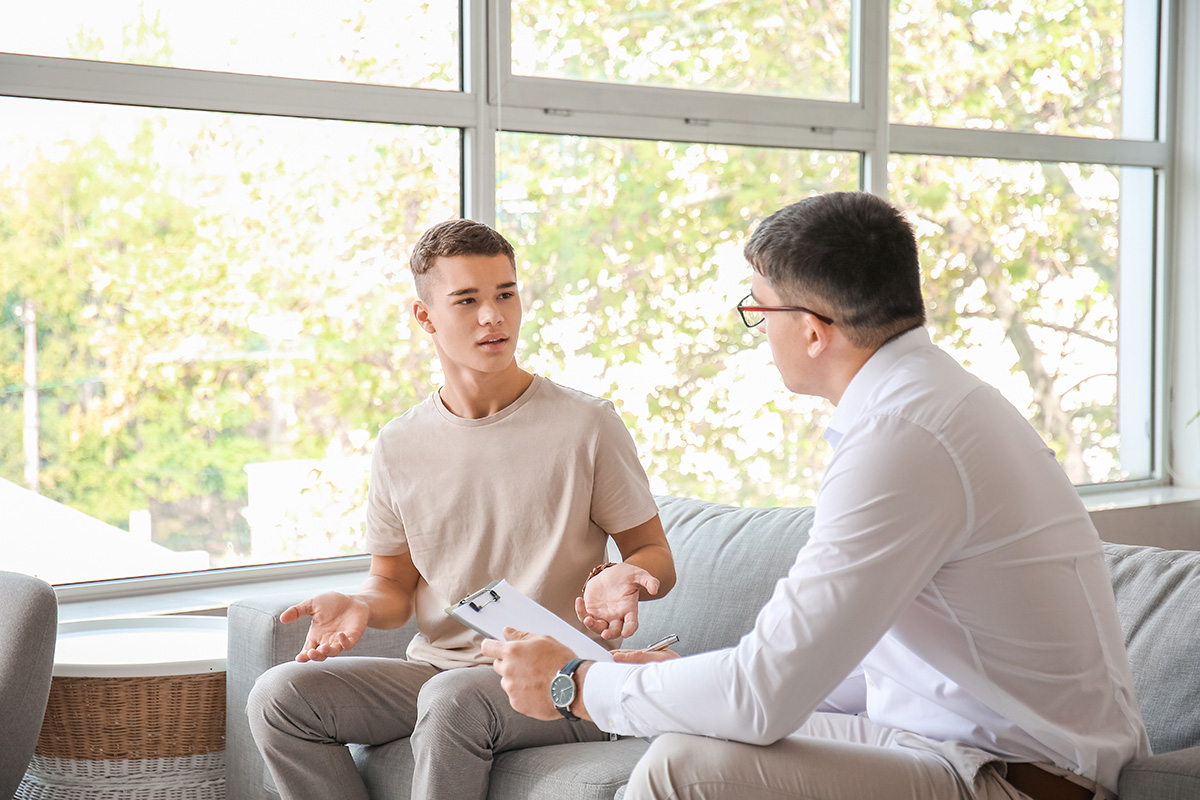Teens Talk to a Therapist: A Guide and Tips
Therapy is a useful tool for individuals who are working through past trauma and learning how to manage mental illnesses. At Ascend Healthcare, we incorporate talk therapy into treatment plans for every teen in our care. Sometimes, teens have therapy independently, but we also incorporate the entire family structure with family therapy sessions.
If you’re wondering how you and your child can make the most out of your therapy sessions, Ascend is here to help. Use these tips when talking to your therapist to experience the most honest, open sessions possible.
Mistakes People Make When Talking to Their Therapist
It’s always tough to be completely open about what you’re feeling. You might be uncomfortable expressing your emotions, or you might not even know what you really feel! Therapists understand this struggle, and they don’t expect you to have all the answers. As long as you’re as honest as possible, a therapist can guide you through a session to fully explore your emotions, fears, and concerns.
Your therapist will keep what you tell them confidential. Your therapy sessions are a safe space, so hiding anything from your therapist is counterproductive, and lying will only hurt your progress. Being open to your own shortcomings can be painful, but exploring your whole being will provide perspective and solutions to help you and your child thrive.
Tips for Talking to a Therapist
If you’re worried about talking to your therapist honestly because of judgment or insecurity, you’re not alone. Before entering a session, take a minute to remind yourself of these facts:
- Your therapist’s role is not to pass judgment on you. Talking about your past experiences and emotions openly can help you process and heal.
- If your therapist has given you activities to do outside of therapy, do your best to complete them. These activities will help you on your journey to recovery.
- Being honest with your therapist is crucial. They can only help you if they know what’s truly going on. Be as objective as possible — even if you’re ashamed.
- Having trouble understanding your therapist or want to dive deeper into a specific topic? Let your therapist know. The more you engage, the more effective therapy will be.
- You won’t solve all your problems during your first session. Commit to the process of healing and be patient as you work towards recovery.
While your therapist might ask some initial questions to begin a session, you choose what you want to discuss when talking to a therapist. If there is a specific topic you want to cover, bring it up and work through the issue together.
Talking to Your Therapist for the First Time?
During your first therapy session, some things you might discuss include:
- What led you to seek out counseling
- The symptoms that you’re experiencing
- Your goals for your time in therapy
While sitting in front of your therapist, you may forget important things that you want to work on, so bringing notes and journals can help you articulate your feelings.
Connect With Ascend Healthcare Today
Whether you’re worried about talking with a therapist for the first time or you want to learn more about the process, Ascend is here to help. Our therapists are experienced in helping teens, and families feel comfortable exploring their emotions and experiences.
If you have any questions about talking to a therapist during our treatment program, connect with Ascend today when you call us at 310.388.3713 or reach out online today to learn more.



